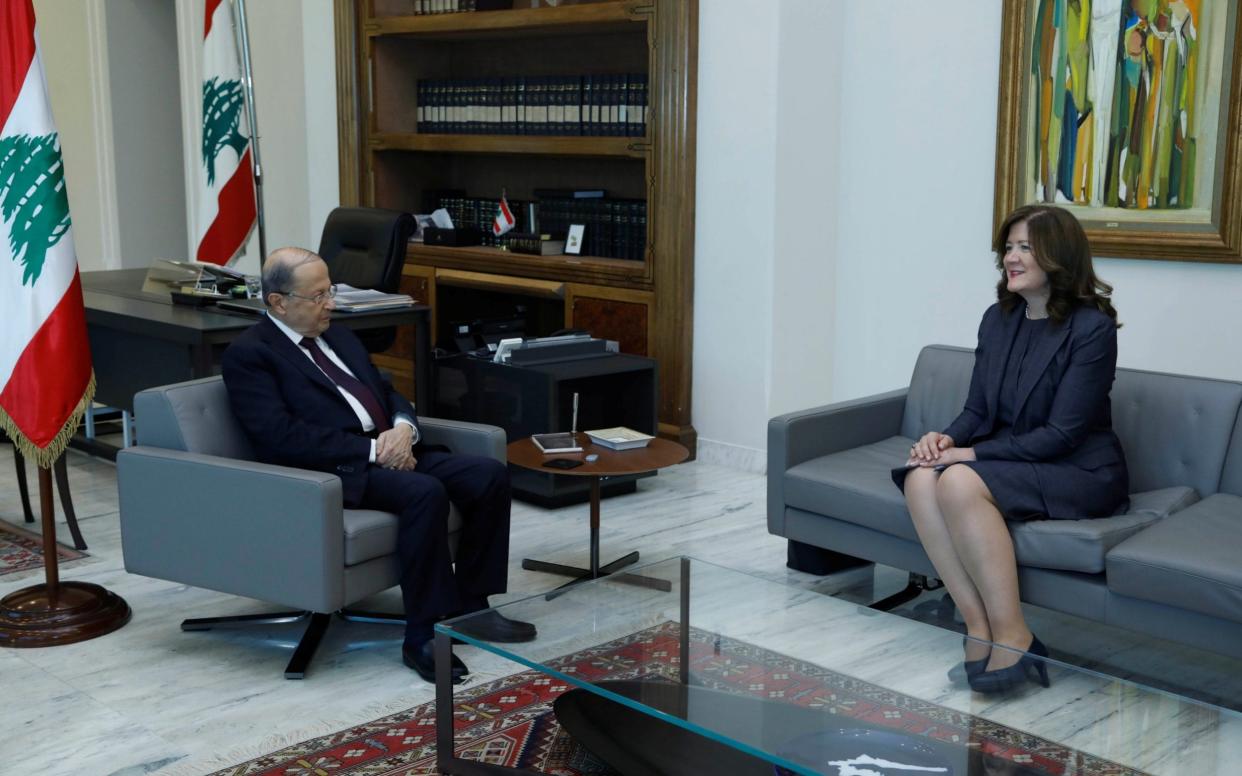Lebanese judge bans media from interviewing US ambassador after she criticised Hizbollah

A Lebanese judge on Saturday banned US ambassador Dorothy Shea from being interviewed by local and foreign press for a year, after she criticised Hizbollah in a TV interview, reflecting rising tensions between the US and the powerful paramilitary group.
Speaking to Saudi-owned TV station Al-Hadath, Ms Shea said that Washington has “great concerns” over Hizbollah’s role in the Lebanese government. The Iran-backed Shiite group and its allies are dominant in parliament and it backs the current government.
The ambassador accused Hizbollah of siphoning off government funds for its own benefit and destabilising the country’s economic recovery.
With the Lebanese lira losing almost 80 per cent of its value since October, the country is grappling with its biggest threat to stability since the 1975-1990 civil war, as its economic crisis continues to spiral out of control.
Judge Mohamad Mazeh in the southern city of Tyre said he acted after receiving a complaint from a citizen that Ms Shea’s comments were “insulting to the Lebanese people.” Mr Mazeh said the comments incited sectarian strife and threatened social peace. While the judge cannot ban Ambassador Shea from speaking, he said he can ban press from interviewing her.
“I think it is a distraction. I wish people would spend their time and attention trying to solve the problems facing the country,” Ms Shea told Lebanese news station MTV on Sunday morning. “The US Embassy will not be silenced,” she said, adding that the Lebanese government had already apologised to her for the ruling.
Hizbollah is designated a terrorist organisation by the US and UK, but the US continues to be one of the largest donors to the Lebanese army, making for a complicated diplomatic balancing act.
Lebanon is currently in talks with the International Monetary Fund, hoping to secure a bailout, though infighting in the Lebanese government has given little hope for an immediate breakthrough.
“It breaks my heart,” IMF’s managing director Kristalina Georgieva said on Friday. “Lebanon is a country that has some entrepreneurial people. It’s a country that has been doing service to the world by hosting refugees. It is clear what needs to be done but... the unity... [is] what we need to still work on,” she said.

